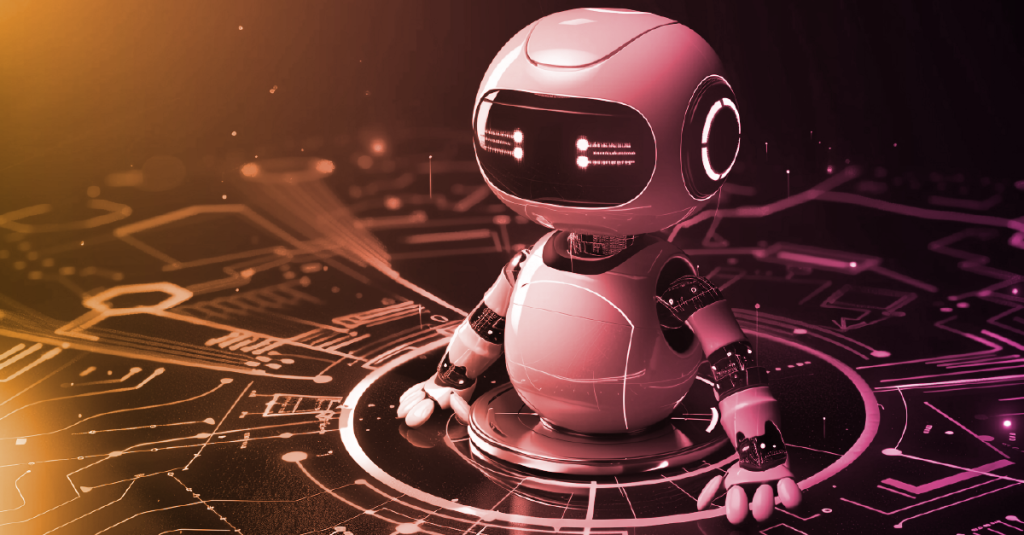17 Oct What’s the Difference Between a Virtual Agent and a Chatbot? (Hint: It’s More Than You Think)

If you’re a business executive or decision-maker, you’ve likely heard terms like “chatbot” and “virtual agent” thrown around interchangeably. But they’re not the same thing—far from it! Understanding the difference between these two AI-powered tools could be the key to driving your business forward.
Curious to know how? Let’s explore the unique capabilities of chatbots and virtual agents and, more importantly, why it matters for your business.
Chatbots: The Basics, Simplified
Chatbots are the simpler of the two. These AI-driven systems are designed to handle routine tasks—think answering frequently asked questions, booking appointments, or guiding users through simple processes.
You’ve likely encountered chatbots on e-commerce websites or during online customer service chats. They’re efficient at dealing with straightforward requests but tend to struggle when conversations get a little more complex.
But here’s the kicker: Chatbots don’t learn from interactions. They follow predefined scripts, and when a user’s query falls outside of that, you’re often left with “I don’t understand” messages or, worse, the frustrating handoff to a human agent.
If you’ve ever thought, “There’s got to be a better way,” well, you’re right. That’s where virtual agents come in.
Virtual Agents: The Game-Changer
Virtual agents are a completely different beast. Unlike chatbots, they aren’t restricted to basic interactions or pre-set responses. Powered by advanced AI and machine learning, virtual agents are designed to learn, adapt, and even anticipate the needs of your customers or employees.
Picture this: A virtual agent can handle more than just basic queries—it can dive deep into complex conversations, provide personalized responses, and continuously improve through each interaction. It’s like having a digital assistant that grows smarter and more intuitive over time.
Virtual agents aren’t just there to respond. They engage.
The Key Differences Between Chatbots and Virtual Agents
Let’s break it down simply:
- Adaptability:
Chatbots follow predefined scripts. Virtual agents, on the other hand, use AI to adapt and learn from every interaction, making them far more versatile. - Complexity Handling:
Chatbots can handle basic, repetitive tasks. Virtual agents are built to manage complex conversations and make decisions based on the context of the interaction. - Learning & Improvement:
While chatbots stay the same no matter how many times they’re used, virtual agents continuously improve, learning from each conversation to offer smarter, more personalized responses. - Efficiency & Scalability:
Virtual agents are scalable and can handle a broader range of interactions, which is particularly useful as your business grows. Whether it’s managing internal workflows, handling HR inquiries, or enhancing customer service, virtual agents do more than just answer questions—they become a valuable asset to your business operations.
What Does This Mean for Your Business?
So, why should you care about the difference between a chatbot and a virtual agent?
For starters, if you’re currently using chatbots, you’ve probably noticed that while they can handle basic tasks, they quickly fall short when faced with more complex issues. This can lead to dissatisfied customers, inefficient processes, or missed opportunities.
Virtual agents, however, offer a way to bridge that gap. By learning from every interaction, they can deliver deeper insights, resolve more intricate problems, and offer personalized support that chatbots simply can’t.
Think about this: What if your business had a tool that could not only handle routine tasks but also help streamline internal processes, enhance customer satisfaction, and grow with you as your business evolves? That’s the power of virtual agents.
Virtual Agents: A Future-Proof Solution
The reality is that customer and employee expectations are evolving. People now expect faster, more personalized service at every turn. While chatbots can cover the basics, virtual agents offer a future-proof solution that can meet—and exceed—these expectations.
Here are a few ways businesses are using virtual agents:
- Customer Service: Offering 24/7 personalized support without overwhelming your human agents.
- Internal Workflows: Managing HR requests, handling scheduling, and answering internal FAQs—all with minimal human intervention.
- Sales Support: Virtual agents can assist with lead qualification, follow-up tasks, and customer onboarding processes, giving your sales team more time to focus on closing deals.
And the best part? As AI continues to advance, virtual agents will only become more sophisticated, making them a long-term investment that grows alongside your business.
Are You Ready to Make the Leap?
If you’re still relying solely on chatbots, it might be time to rethink your approach. Virtual agents offer a powerful, scalable solution that can improve operations, boost customer satisfaction, and help you get ahead of the competition. The key difference lies in their adaptability, intelligence, and ability to grow smarter over time.
So, the next time you’re considering AI for your business, ask yourself this: Do I want a tool that can handle basic tasks, or do I want a solution that will evolve and support my business’s growth?
Virtual agents aren’t just the future of AI—they’re the present. And the sooner your business starts using them, the more prepared you’ll be to tackle the challenges of tomorrow.

